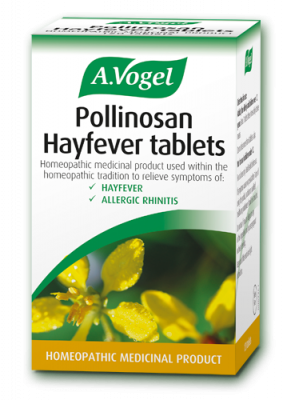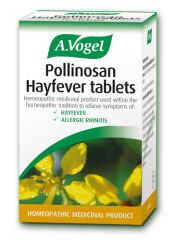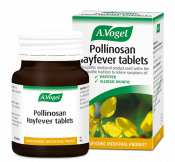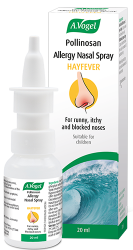Allergic rhinitis
In someone with allergic rhinitis, the body treats things like pollen, dust mites and mould spores as enemies to be destroyed. This is in contrast to those without the condition where these things are able to pass by freely. In its attempt to get rid of these seemingly problematic particles, the immune system produces large amounts of histamine causing issues like inflammation, swelling and itching.
Animals and allergic rhinitis
Allergic rhinitis that comes about as a result of exposure to animals is called perennial allergic rhinitis meaning it occurs all year round. This is in contrast to seasonal allergic rhinitis which is caused by factors outdoors like pollen.
First things first, we must establish that there is a difference between a pet allergy, and the symptoms of allergic rhinitis that come about after contact with animals. In an animal allergy for example, it is specifically fur that a person is allergic to. However, in someone with allergic rhinitis, the problem is with the urine, saliva and dead skin cells of animals. These things are known as allergic dander and contain protein which can generate many of the main symptoms associated with allergic rhinitis.
Symptoms
Allergic rhinitis that comes about as a result of contact with animals results in a frustrating set of symptoms including congestion, sneezing and a runny nose. However, the problem extends beyond the nose too as the eyes may begin to water and itch.
If you are exposed to a pet on a long-term basis, symptoms can become chronic and long-lasting. You may also begin to develop difficulty sleeping as the symptoms mentioned above make a good night’s sleep difficult.
It is rare but there can also be complications from the condition such as sinusitis and middle ear infections.
What animals cause problems?
Cats and dogs are the most common culprits of allergic rhinitis, but they are not the only ones to cause issues. There are many other types of animals that give rise to the problem as well including horses, cattle, rabbits, hamsters and guinea pigs.
Many people also assume that certain breeds, such as those with long fur, are more problematic than those with short fur. This may be the case for people with regular pet allergies, but it is not the case with allergic rhinitis as in this condition there are no breeds of cat or dog that will make your allergy particularly worse. This is because the condition is affected by saliva, skin and urine rather than the length of fur, the type of fur, or the amount of shedding. After all, every animal dribbles saliva, sheds skin and urinates so allergic dander spreads easily regardless of the breed.
When do symptoms develop?
This question isn’t an easy one to answer. For some, symptoms may develop immediately after contact with the animal, for others it could be hours later. Also, depending on the extent of contact, symptoms could extend over a prolonged period of time, fluctuating in severity as you go about your day-to-day life.
Allergic dander can collect on things like furniture, carpets, clothing and bedding after contact with an animal. Therefore, even if there’s no longer one about, you can still experience symptoms of allergic rhinitis as a result of an animal. Also, visiting a friend who owns a pet can cause allergic dander to gather on your clothes and from there it may spread around your own home when you return there. As a result, this may cause symptoms to develop long after your contact with the animal has ended.
What can you do?
Fortunately, there are a few steps you can take yourself to try and minimise the impact of animals on your allergic rhinitis symptoms. However, if you have a pet you’ll be glad to know that none of these steps involves consigning your animal to a life outdoors! This is because, believe it or not, this won’t actually help your symptoms. As mentioned, pet dander can find its way into your home through clothing or footwear – it doesn’t have to come from one-on-one contact with an animal.
Cleaning - regular cleaning and hovering can help to lessen the effects of pets on allergic rhinitis symptoms. However, when dusting make sure you use a damp cloth rather than a regular duster as this will gather any allergens up rather than just pushing them around.
Flooring – allergic dander can easily stick to carpets and rugs so if allergic rhinitis is a problem, where possible, these are best avoided.
Pet-free zones – don’t worry, I’m not going to suggest you give up your pet! Nevertheless, it may be a good idea to have some pet-free zones within your house to help ease your symptoms. Each night you spend a lot of time in your bedroom for example, so this is one place where you may find it beneficial to cut off your pet’s access.
Herbal help – for a natural and effective treatment for allergic rhinitis you could try our Pollinosan Hayfever Tablets. These are made from seven tropical herbs and so, unlike traditional medicines, they will not leave you feeling drowsy. Plus, they can be used with other hayfever medications if you feel that is necessary.
Conventional Treatments
If your allergic rhinitis symptoms persist, it may be worth visiting your doctor who’ll be able to offer some advice about the various treatment options available to you.
Antihistamines – these are regularly prescribed by doctors for allergic rhinitis as they block the release of histamine which is produced when the body comes into contact with an allergen. However, there are a few side effects such as drowsiness to be aware of when taking antihistamines.
Immunotherapy – this involves introducing the body to the thing it’s allergic to in the hope that, with persistence, the body will eventually become immune to it. However, it is only used in the most severe cases and as a last resort too.






 Looking for a solution to curb those hayfever symptoms such as itchy eyes, constant sneezing and congestion, then look no further than A.Vogel’s Pollinosan Hayfever tablets.
Looking for a solution to curb those hayfever symptoms such as itchy eyes, constant sneezing and congestion, then look no further than A.Vogel’s Pollinosan Hayfever tablets.


